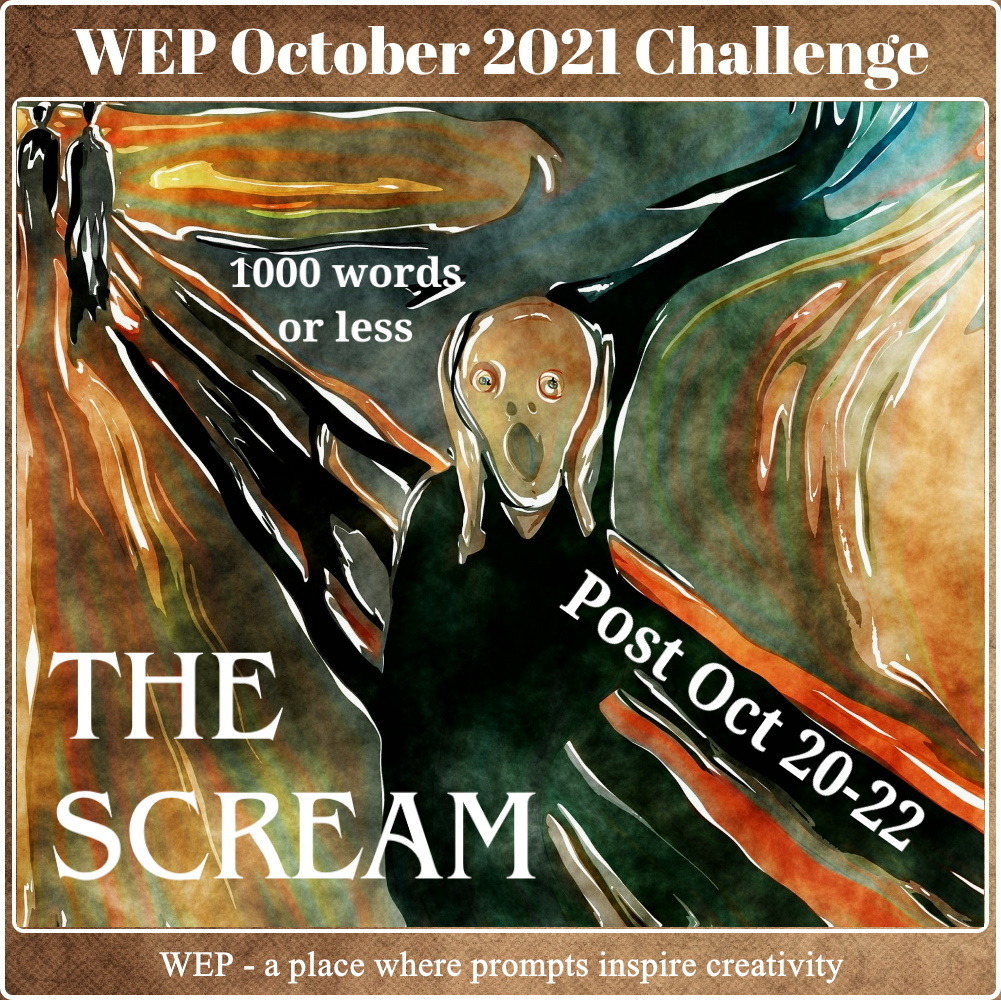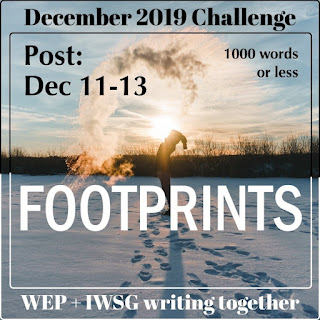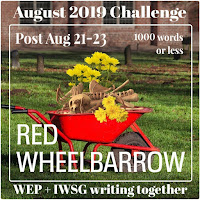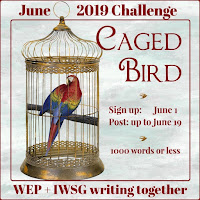1. SUBMIT your name to the list below on December 1 thru the 15th. Add your link (URL)
2. POST your entry, put WEP is in the TITLE along with The Narcissus badge within your entry.
3. STATE feedback preferences and word count at the end of your entry.
4. READ other entries, giving feedback if requested.
5. SHARE THE CHALLENGE on social media. Tweets are ready on the WEP blog.
ALL GENRES WELCOME except erotica - 1,000 words maximum
My story for this month's challenge is maybe cheating a little--I didn't write it for the challenge, but I decided that the common understanding of Narcissus and narcissism fits well enough, even if the story doesn't relate to the painting. I wrote this while trekking in Nepal last month, highlighting a character who certainly thinks a little too well of himself. And while Monday isn't my usual day for sharing flash fiction, it was my best bet for fitting within the time frame.
Snow Dragon
The thing was impossible. James Whitherspoon the Third had absolutely no doubt of that, so the shock was complete when it proved to be true.
Whitherspoon knew dragons; had fought them and tried to learn their language from any who would tolerate teaching him. But the dragons had all been in the low hills. They hated the cold. Whitherspoon was not up here in the snows to meet dragons.
So what in the name of all that was holy was this one doing sitting on a glacier? And it was pure white, nearly invisible against the snows, rather than the brilliant ruby and emerald of the low-land dragons. Whitherspoon stomped his booted feet more securely into the snow, stared again at the dragon to ensure it was really there, and looked around for his porters. They would surely know what was up with this strangely misplaced creature.
Perhaps they did. The porters were merely small dark specks well down the mountain slope. Whatever they knew of snow dragons, they clearly didn’t care to meet one.
So what? It was he, James Whitherspoon, not some unlettered local bearers of burdens, who had spent a lifetime studying dragons. Not for him terror and flight.
Whitherspoon continued to slog upwards through the snow and ice. When he was near enough to be heard, he planted his hiking staff, folded his hands on the knob at the top, and called out, “Greetings to you, oh dragon of the high places!”
It was a polite enough greeting, but the only response was a small puff of smoke from the creature’s nostrils, and a stomp of the left forefoot in a manner that might suggest irritation.
Not that Whitherspoon noticed or cared. He focused on the smoke: It must mean that at this altitude, or in this deep snow, the dragon couldn’t flame. Probably the thing was lost and in trouble. Whitherspoon managed to work himself up to quite a sympathy for the poor, lost dragon, which he would of course save from the horrific fate that awaited it in the high-altitude snows.
The self-proclaimed scholar approached closer. The dragon stamped first the left, then the right front foot. Whitherspoon took another step forward, again struck his pose with his staff.
“Can I help you, Master Dragon?” He maintained the respectful form of address, but there is no denying that the nature of the question was condescending, at the least. Certainly the dragon seemed to think so. It shook its head, uttered something int he dragon tongue that Whitherspoon was pretty sure was a curse, and finally deigned to speak in English.
“Leave my mountain at once.”
Leave the mountain? Or what? Whitherspoon actually laughed. “Leave, or you’ll warm me with your breath? Fire is what I crave most here, you know. If you haven’t noticed, it’s cold.”
“I warn you again: You do not belong here. Your companions are wise. They know where they are not welcome.”
Whitherspoon dismissed a vague memory of how hard it had been to find any porters willing to cross this particular pass. Still full of confidence in his own learning, he persisted.
“I can help you find your way back to the warmer lands, where you can thrive.” You fool was in his tone and his heart, if not in his words.
The dragon huffed. As Whitherspoon expected, only a trickle of heavy smoke emerged from the nostrils that, in the lowlands, could incinerate an explorer/scholar in one huff.
“See?” Whitherspoon pointed out. “You are disarmed. You need my help. In return, I ask only that you fly me to my next destination.”
The dragon lashed its tail. “You weary me. What’s more, you insult me.” It drew in a great lungful of the frozen air.
Whitherspoon expected the dragon to drop down dead. Instead, it blew the air back out, exactly as though it breathed fire over him.
The expert on dragons was instantly encased in ice.
When a spring avalanche returned him to the village below, the look of shock and astonishment on the face of James Whitherspoon III was perfectly preserved in his ice coffin.
###





















